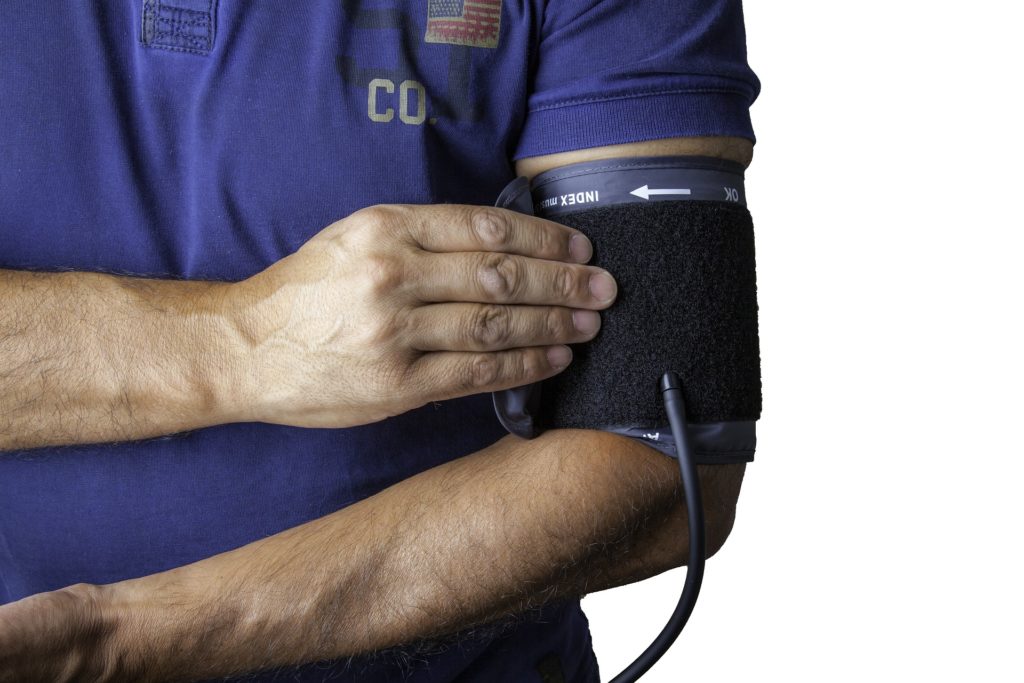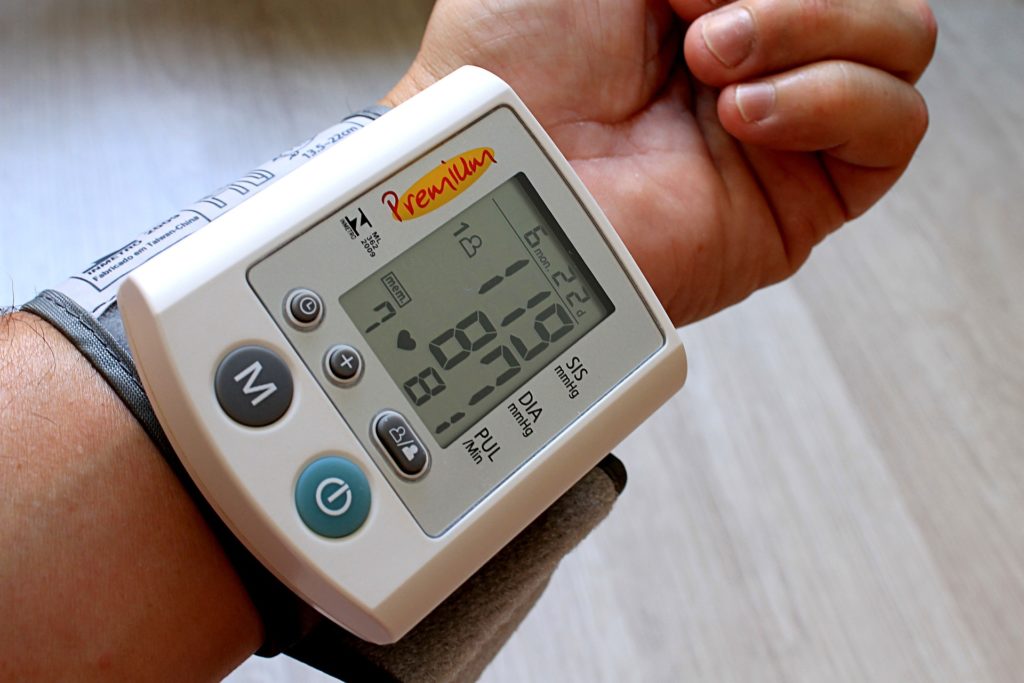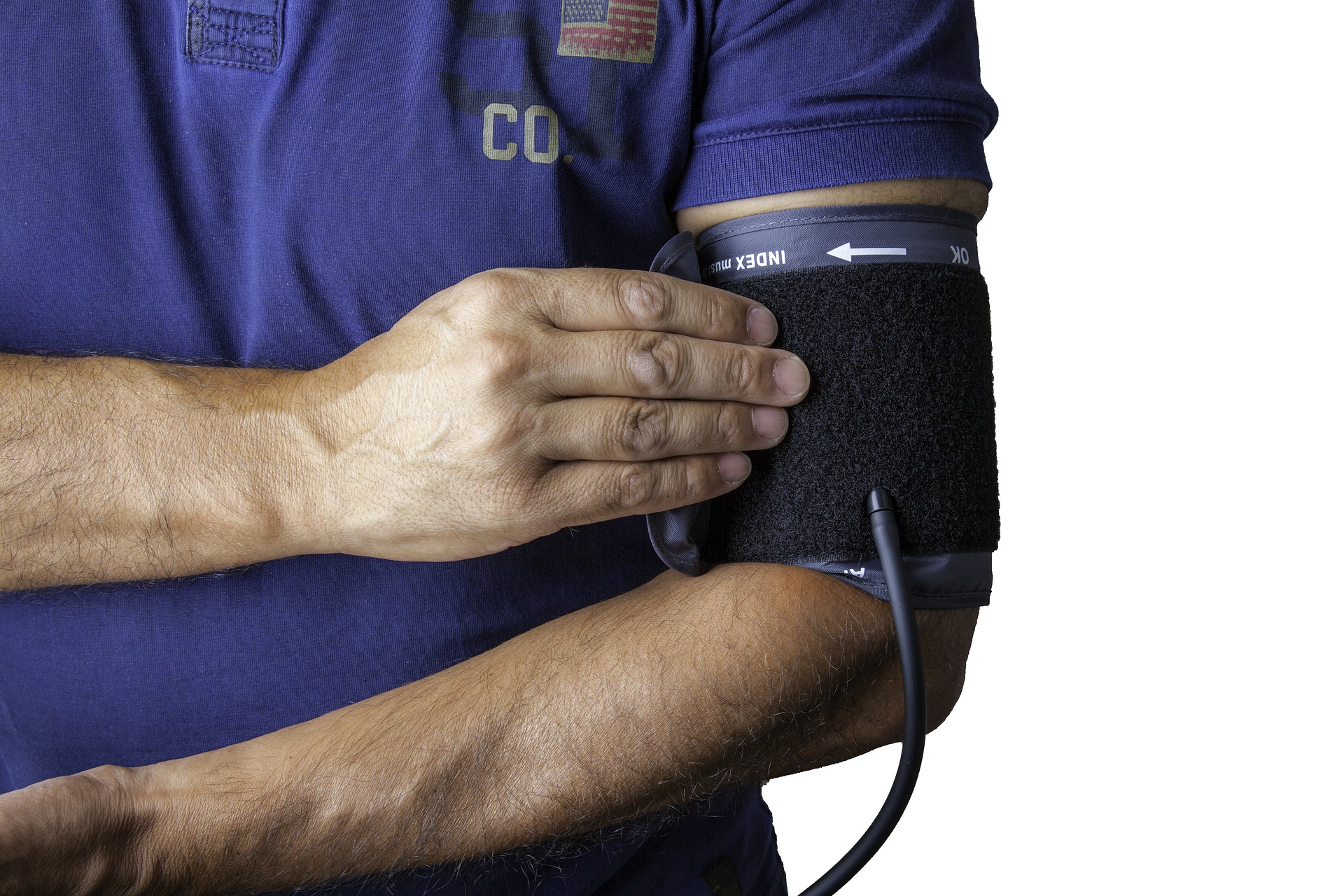Let’s talk about the key to longevity: Blood Pressure. understand those reasons, and have some ideas of ways to moderate your own blood pressure. Of course, there’s no substitute for the direct, customized advice of a qualified medical provider. If you’d like a wholistic treatment plan for your heart health and longevity, schedule a consult with Dr. Katherine. In the meantime…
When was the last time you had your blood pressure checked?
If you’re thinking about living well for a long time, hopefully it wasn’t too terribly long ago.
Do you remember the reading? Maybe you were prescribed medication to lower your blood pressure (antihypertensive). Perhaps you were annoyed at the whole exercise?
What exactly is blood pressure?
Before we can talk about the key to longevity, let’s talk about what it is. Put simply, blood pressure is the amount of pressure (measured in millimeters of mercury, mmHg) your blood exerts on the walls of your blood vessels as it moves around the body.
A blood pressure reading consists of two numbers, expressed as a fraction: 120/80, or, said out loud, ‘one twenty over eighty.’
There are two numbers because the heart moves blood in two phases: contraction (systolic) and relaxation (diastolic).
Therefore, the top number is a measure of systolic pressure. It is the higher of the two numbers, because it refers to the pressure exerted as the heart pushes blood out to the body.
The bottom number is a measure of diastolic pressure. It is the lower of the two numbers, because it refers to the pressure exerted as the heart relaxes and refills with blood.

Why does blood pressure matter?
Consider you own a large garden or mini-farm… maybe half an acre you actively cultivate. But have neither the time or interest to stand outside watering all those plants. So you put in an irrigation system consisting of a main hose from the tap that then branches off into soaker hoses that have holes to let the water gently and slowly seep into the ground.
Your circulatory system is not so different. From the ventricles of the heart comes the aorta, which then branches into smaller arteries, and then again into yet smaller vessels, all the way down to the tinies capillaries which allow for the exchange of all manner of nutrients and waste products from cells.
If the pressure in your irrigation system is too low, the water’s not going to get where it needs to be very efficiently. While low blood pressure can certainly be a problem for some, it’s far less common of an issue than elevated blood pressure.
Consider that, for whatever reason, your water pressure skyrockets. Rather than seeping water into the ground, those soaker hoses are spurting and flooding the ground.
You can imagine, if you extend the image to the human body, the potential for life-threatening issues like an aneurysm or stroke.
The primary reason then, that blood pressure matters as much as it does, is that it lies at the root of so many more serious illnesses. This is why the keys to longevity is blood pressure. And, luckily, it’s relatively simple to correct.
What should your blood pressure be?
Ideally, for adults (18-65 years old), blood pressure should be somewhere between 90/70mmHg and 120/80mmHg.
As blood pressure increases, so too does the risk of emergency and the type of treatment recommended.
To take your own blood pressure, it’s an excellent idea to invest in an at-home blood pressure machine. Take readings at various times of the day, ideally using your left arm, and always sitting with both feet on the floor.

What do I do about elevated blood pressure?
The terribly unsatisfying answer is, it depends.
If your blood pressure is mildly elevated (120-129/80mmHg), diet and lifestyle changes are an excellent place to start.
- Eat more vegetables! Our nutritionist Niki Carr is an excellent resource for how to work more veggies into your diet in a way that you actually enjoy.
- Decrease salt intake. If you’re eating out or eating a fair bit of packaged food, you’re getting a solid dose of sodium. Sodium increases blood pressure because it draws more water into the blood vessels. More water + same amount of space = higher pressure.
- Manage stress levels. Few things increase blood pressure more dramatically than does stress. You can join Dan Calabrese and his monthly Re-Wild group to get outside, which lowers stress and blood pressure by default. Some other wasy to manage stress levels include mindfulness meditation, breathing exercises, and mind-body movement like yoga. Counseling is also an excellent way to manage stress levels.
- Move your body! Moving your body regularly in ways you enjoy supports cardiovascular health, brain health, and helps lower stress levels. Win, win, win!
If your blood pressure is moderately to more highly elevated, treatment plans vary more widely. The above recommendations are standard, but a few things might be added to your unique plan:
- Herbs and/or supplements. Some nutrients like magnesium help to lower blood pressure by improving the relaxation of the muscles that make up your blood vessels. Herbal medicines like hawthorne and dandelion root can also be used to help tonify the cardiovascular system and improve clearance of excess water from the body (less fluid + same amount of space = lower pressure).
- Medications. In more severe cases of hypertension, medications are recommended, most commonly diuretics that help the kidneys eliminate more water from the body (see above).

What other factors matter?
Of course, blood pressure isn’t the whole story, by a long shot. Some other critical components include levels of blood lipids, like cholesterol and triglycerides. Levels of inflammation throughout the body play a major role in the likelihood of having a serious cardiovascular event as well, as it’s the inflammatory process that is responsible for hardening and narrowing of arteries.
Of course, if you want to get a handle on not just your blood pressure, but these other factors that influence cardiovascular health, you can schedule a consultation with Dr Katherine. She’s able to complete lab work in the office with crystal-clear transparent pricing, and then provide a bespoke, comprehensive treatment plan.




